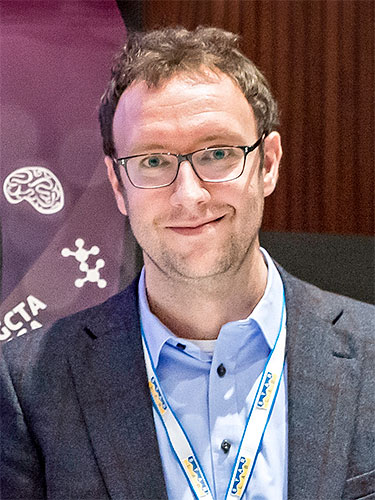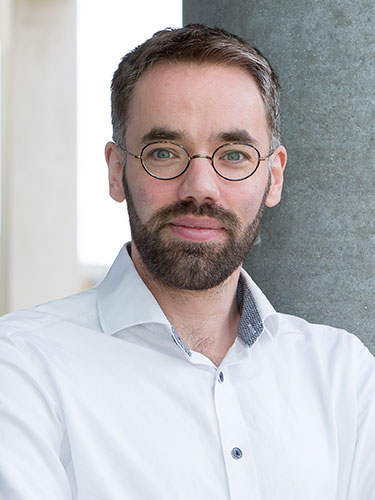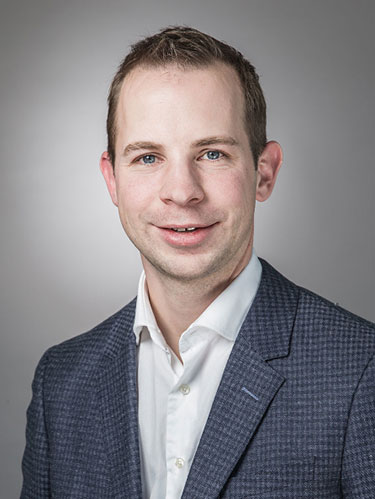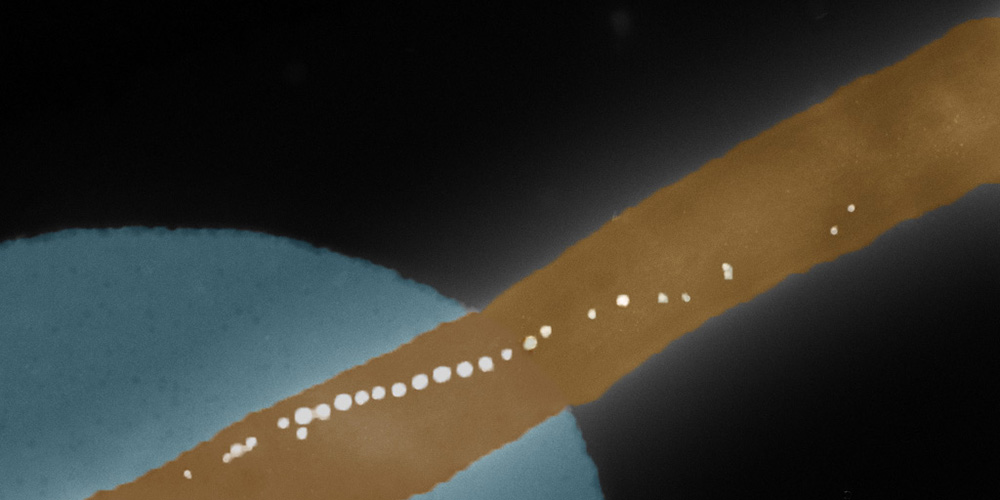Three ERC Consolidator Grants for research in Basel
The European Research Council (ERC) awards three researchers from the University of Basel with one of the coveted ERC Consolidator Grants. The projects in the fields of biomedicine, molecular biology and chemistry will each receive funding of around 2 million Euros.
09 December 2020
The European Research Council (ERC) today announced the recipients of this year’s ERC Consolidator Grants: A total of 327 applicants from all over Europe have been awarded this prestigious grant including three researchers from the University of Basel.
With the Consolidator Grants, the ERC supports highly qualified young scientists with several years of research experience and a promising scientific track-record. They receive an average of around two million euros for their projects over a period of five years.
Blocking of circulating tumor cells
In his research project, Prof. Dr. Nicola Aceto focuses on the prevention of metastasis in breast cancer. Metastases develop from clusters of circulating tumor cells (CTCs) that detach from the primary tumor and migrate into new tissues via the bloodstream. If a tumor forms metastases, the chances of a cure therefore decrease significantly.
While the clinical and biological characteristics of CTCs are being widely researched, the mechanisms of their formation from a solid tumor mass are still largely unknown. The research group around Aceto has found out that the formation of CTCs does not happen by chance, but is triggered by certain signals. Their project aims to identify the cell-autonomous and non-cell-autonomous mechanisms behind these signals. Based on these findings, new therapies will be developed that block the tumor cells in situ and thus prevent their spread.
Nicola Aceto works as a SNSF-funded professor of oncology at the University of Basel’s Department of Biomedicine. In January 2021 he will start working as a professor of molecular oncology at ETH Zurich.
Colonization strategies of multidrug-resistant gut bacteria
The rise of multidrug-resistant bacteria is one of the world’s most urgent public health problem. In the past years, multidrug-resistant E. coli bacteria, MDR E. coli for short, have been one of the leading causes of deaths attributed to antibiotic resistant bacteria in Europe.
In his ERC funded project, Prof. Dr. Médéric Diard from the Biozentrum of the University of Basel aims to identify these traits important for successful gut colonization of MDR E. coli and to explore the role of the intestinal microbiota, competitors and the immune system in this process. Understanding the general principles underlying intestinal colonization of multidrug-resistant E. coli will be essential for designing new treatment options.
In 2018, Médéric Diard started as a SNSF Professor at the Biozentrum of the University of Basel. He recently received a grant from the Gebert Rüf Stiftung to explore novel microbiota engineering strategies. His team is also part of a multi-investigator project funded by the Botnar Research Centre for Child Health (BRCCH).
Control over higher-order stereogenic elements
Prof. Dr. Christof Sparr investigates new synthetic methods to control the configuration of stereoisomers with higher-order stereogenic elements. These are chemical compounds with identical binding patterns that differ in the spatial arrangements of their atoms.
His project focuses on stereoisomers with three- to sixfold stereogenicity. Previous catalytic methods differentiate stereogenic elements with twofold stereogenicity, allowing a selective and more sustainable synthesis of a multitude of bioactive compounds. The anticipated selectivity over higher-order stereogenic elements would significantly expand the synthetically accessible stereochemical space and thereby firmly interconnect the concepts of conformational analysis and stereoselective catalysis.
Christof Sparr has been an assistant professor of chemistry at the University of Basel since 2016. He was awarded the Werner Prize of the Swiss Chemical Society in 2017 and the Ruzicka Prize in 2018.
European support for excellent scientists
The ERC Consolidator Grants are a funding instrument within the framework of Horizon 2020 to realize high-risk research projects with high potential. This year, the ERC received 2506 research proposals, from which 13 percent will be funded. Thereof 21 ERC Consolidator Grants went to institutions in Switzerland and three to the University of Basel. The next deadline for proposals is 20 April 2021 (tbc).
Further information
Reto Caluori, University of Basel, Communications, phone: +41 61 207 24 95, email: reto.caluori@unibas.ch





